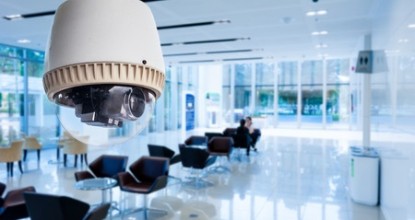Balancing your need for information with workplace surveillance legislation

Workplace surveillance can be a tricky slope to manage for employers, with their thirst for knowledge about their employee’s activities sometimes outweighing their requirement to comply with legislative obligations. It is understandable: an employer provides the workplace so therefore, they should be able to monitor that workplace in any way they like, right? Unfortunately that is not the case and employers must comply with specific notice requirements prior to undertaking any workplace surveillance.
In most Australian states, there is legislation which governs what an employer can and cannot monitor and what steps they must comply with prior to commencing surveillance. In NSW, the Workplace Surveillance Act 2005 (NSW) states that an employer must give at least 14 days notice prior to the surveillance commencing. Details about how the surveillance will be carried out (i.e. whether by camera, computer, tracking etc) and whether the surveillance will be continuous or intermittent must be provided to employees. The Act also prohibits certain types of surveillance, including surveillance of bathrooms and change rooms and covert surveillance which employees are not aware of.
The notice requirements which employers must comply with can often be a disincentive for businesses to carry out surveillance as it means that they will be unable to catch employees unaware in compromising situations or doing something which the business would not approve of. Generally, once an employee is aware that an employer is monitoring their behaviour, whether by camera or computer tracking, the employee will think twice before engaging in unsatisfactory conduct. This can often be a motive for employers to engage in covert surveillance. However, if an employer does not comply with their obligations under the Act prior to commencing surveillance, they will be unable to use the surveillance in any disciplinary proceedings they may commence against an employee and could face financial penalties.
Recently, the issue of workplace surveillance has received significant attention in the media. In January, Britain’s Daily Telegraph made headlines when it installed tracking devices to journalist’s desks which monitored their movements. Following backlash from employees and unions, the devices were quickly removed. However, for the employees who were working there, the damage had already been done: how could they have trust and confidence in the company when they had attempted to secretly record their activities without their knowledge?
Another issue which has arisen with advances in technology is wearables: devices that employees can wear both in and out of the office, with the company monitoring specific metrics, including how much sleep and exercise they are getting. Whilst legislation can often be slow to catch up with technology, employers should stop and consider the benefits of such technology versus the invasion of privacy that will inevitably occur when they are monitoring their employee’s activities away from work. Prior to collecting and using the data received from wearables, employers should ensure that their activities comply with the Privacy Act 1988 (Cth).
Tips to consider prior to undertaking workplace surveillance:
- Think about the benefits that will be associated with undertaking surveillance of employee’s activities. Surveillance can signal to employee’s that the company doesn’t trust them. As a result, employees may lose trust and confidence in the business. If you think surveillance is absolutely necessary, look at why it is so and the reasons for this: you may have a larger problem if you can’t trust your employees to do the right thing.
- Consider the type of workplace surveillance that you need for the business. Not all types of surveillance involve videoing employee’s activities 24 hours a day. There are software programs that can record the websites employees are visiting and GPS for employees who are on the move away from the office.
- If you decide that surveillance is necessary, it is essential that you comply with the notice requirements under specific state workplace surveillance legislation. This includes having a workplace policy in place explaining the company’s position on workplace surveillance activities.
- Whilst workplace wearables are a trend that businesses are increasingly buying into, consider whether this could intrude on an employee’s personal life and their work-life balance. Genuine consent should be given by the employee prior to them using wearables. Businesses should ensure that they are using the data obtained in an ethical way that also complies with privacy legislation.
This content is general in nature and provides a summary of the issues covered. It is not intended to be, nor should it be relied upon, as legal or professional advice for specific employment situations.
